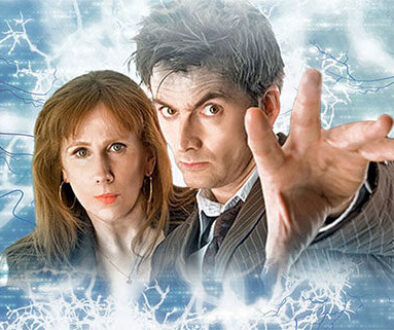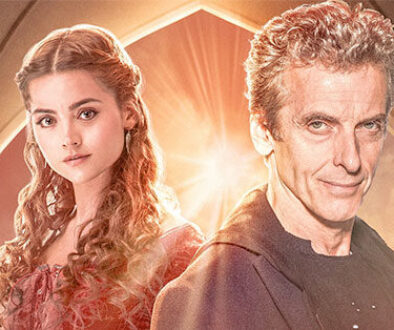Time Trips: The Anti-Hero Review
Patrick Kavanagh-Sproull gives his verdict on Stella Duffy’s Time Trips story.

Seemingly concluding the Time Trips series – BBC Books’ scattershot range of e-books – is Stella Duffy, serving up a Second Doctor story, an incarnation previously untouched by this series. While Patrick Troughton’s Doctor is not the one I’d pick (a First or Ninth Doctor story would have been lovely), beggars can’t be choosers so I’m content with Duffy’s choice. She has, quite interestingly, selected two companions to accompany the Doctor in The Anti-Hero (a pun that you’ll appreciate on the other side): Zoe Heriot and Jamie McCrimmon, both tagging along for the closest thing the Time Trips series has had to an out-and-out historical adventure.
Set late into Troughton’s tenure, The Anti-Hero throws us immediately into the action, the opening scene dropping us into the TARDIS, which is more of a rowdy household than a time-space ship. True Scotsman Jamie is preparing his rather unsavoury porridge and brainy Zoe is swotting up on her textbooks unnecessarily, all the while the Second Doctor is trying to maintain order. However, the TARDIS is swiftly drawn to ancient Egypt, to the Musaeum of Alexandria (the original building that coined the word we now know as ‘museum’) where the trio discover villainous forces at work. Duffy’s premise is simple and uncomplicated in comparison to Joanne Harris’ spectacular The Loneliness of the Long-Distance Time Traveller but as I’ve learned, it’s both unfair and unwise to juxtapose the stories in what has been a hit-and-miss series. Mark my words, Duffy’s story certainly isn’t a miss.
The Time Trips range has been to the far future, the future round the bend, the 16th century and planets light-years away, The Anti-Hero lays claim to the title of the Oldest Story, dropping our heroes in 60AD(-ish). The Alexandria presented here is very much of yore and The Anti-Hero is unique in that it leans more towards historical than sci-fi adventure. This is by no means a bad thing and it’s a lovely, refreshing change from the straight science fiction we’ve had in previous months.
As Duffy has taken a historical concept – Greek mythology – she puts a spin on it and it’s something that will strike a chord with newer viewers. It’s really what makes The Anti-Hero stand out and while it’s hard to go into detail here, you’ll understand it come the resolution.
In terms of villains, this is another area it’s hard to address and it’s one I’ve had to skirt around in past reviews as these e-books have been so short they have, more or less, relied on twists so again – apologies – I’ll skip this aspect. What I’ll say is that the execution is well done and unique with some gruesome elements to the Doctor and their confrontation.
The characterisation of the Doctor here is note perfect, the great Patrick Troughton’s voice can be heard in every line spoken by the character and Duffy nails the stuttering befuddlement the Second Doctor is so well known for. Looking at the companions, Zoe is the better served of the two companions Duffy has utilised (and also the one who gets more to do – Jamie is preoccupied for most of the novella): playful, resourceful, almost snide about the ancient, technology-free civilisation. However, Jamie is still recognisable and his seldom seen, slightly macho Jacobitical spirit shines through his lines. Whatever your quibbles about The Anti-Hero (the resolution is painfully tight, wrapped up in a paragraph or so), it certainly has the central characters down pat.
Verdict: 8/10
The Anti-Hero struggles in its third act but what comes before it is a fun, pacey and surprisingly educational adventure that draws a lot from Greek mythology and creates a lovely, little sci-fi tale from it. With a perfectly captured Doctor, two solid companions, a strong, believable plot and an interesting villain(s) it’s a likeable little yarn that’s well worth half an hour of your time.








